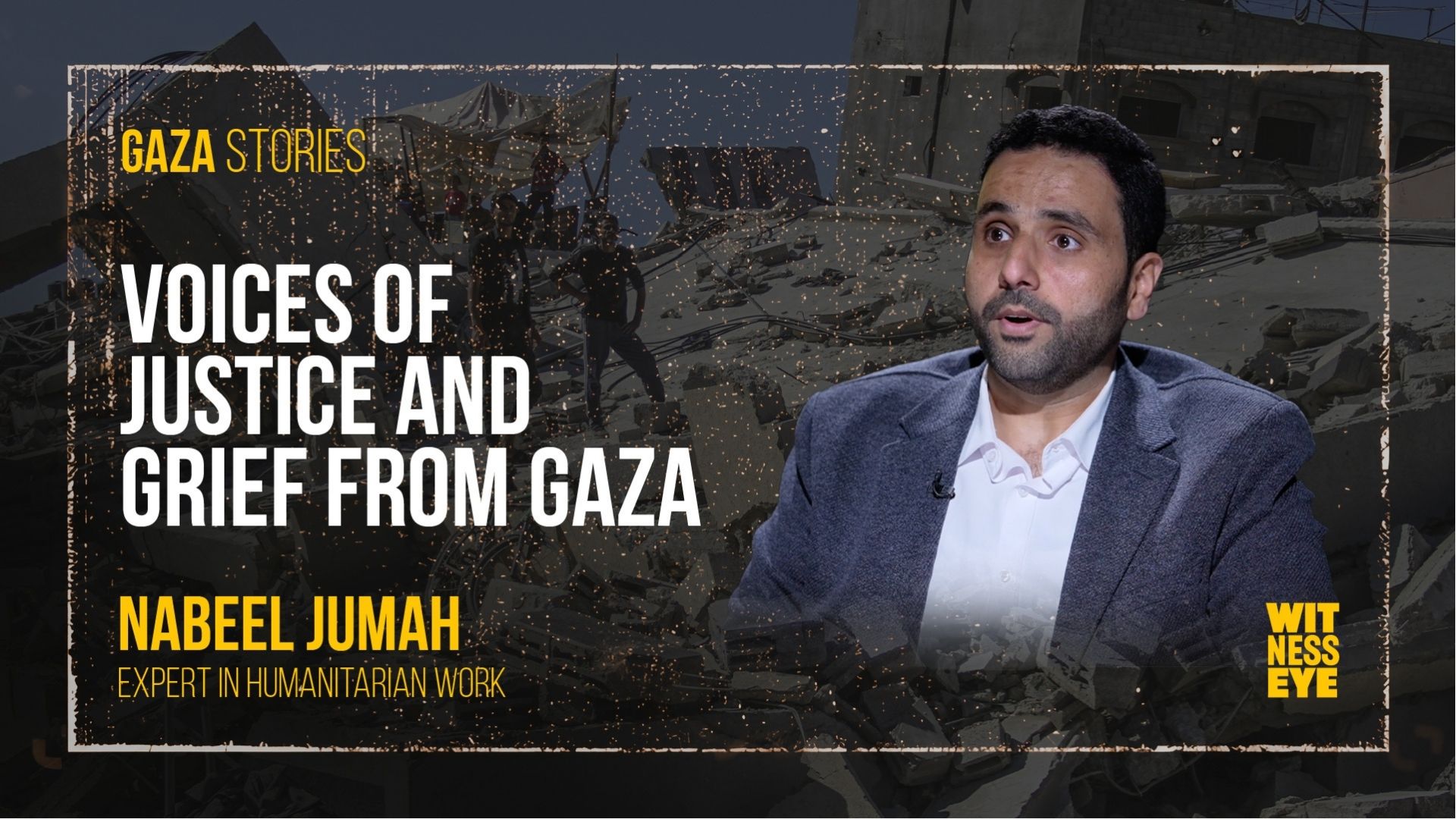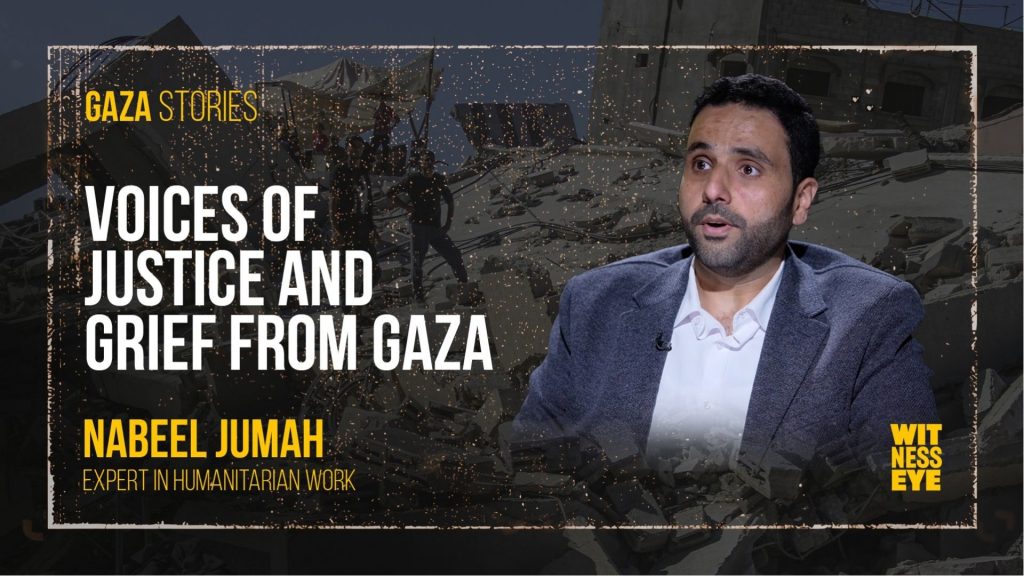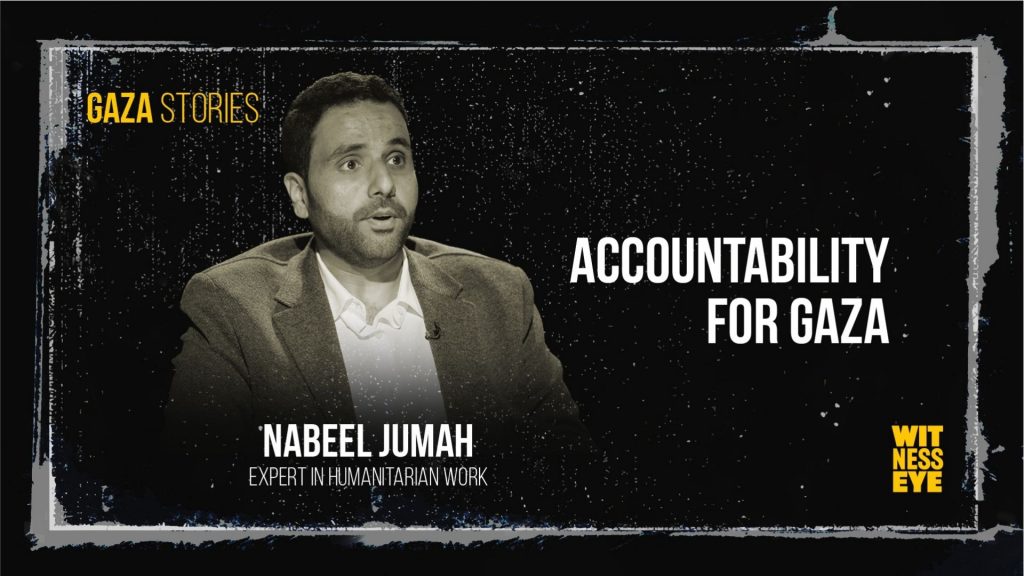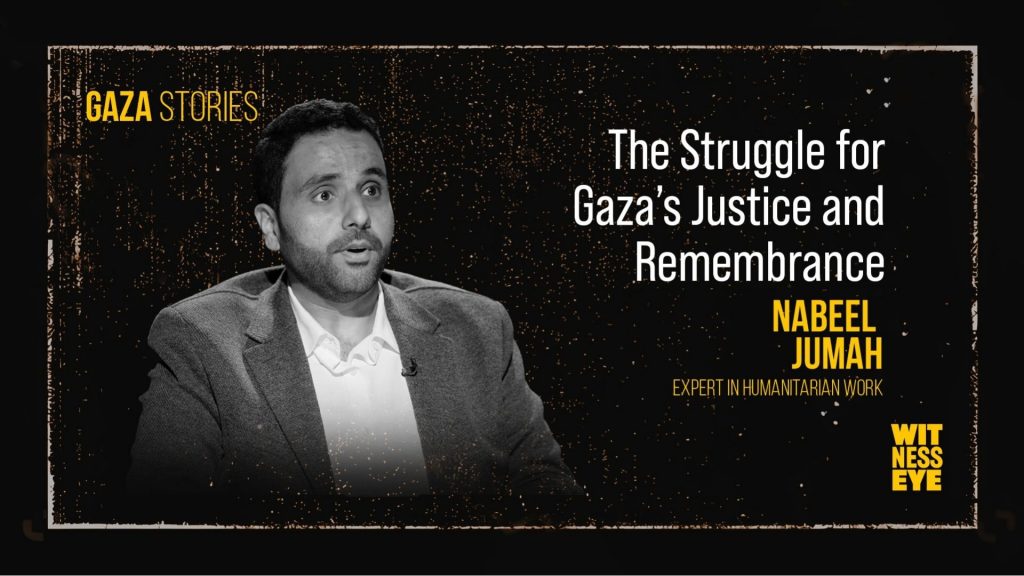
The call for justice is not only a question of international law; it is part of what Gaza Stories reveal — a demand rising from the ruins of families, schools, and hospitals across the besieged strip. In testimonies like that of Professor Nabeel Jumah, Gaza Stories remind us that people are not only victims of war but also witnesses determined to expose crimes to the world. On December 4, 2024, in the so-called “safe zone” of Mawasi, two incendiary missiles struck his family’s tents, killing his father, brothers, and nieces. This account, like countless other Gaza Stories, is not an exception — it is a fragment of collective suffering and a reminder of why justice matters.

The Story of a Family Torn Apart
Professor Nabeel is both a humanitarian work expert and a direct victim of genocide. His testimony begins with personal loss. The martyrdom of his father, three brothers, and other loved ones, his father, a 77-year-old mechanical engineer, refused to leave Gaza, saying, “At this age, shouldn’t I be sealed with martyrdom?” These words now echo in every courtroom call for accountability.
His brother Ahmed, a lawyer “who never lost a case,” was killed alongside his children. Families like theirs, displaced into what was falsely labeled a “humanitarian zone,” prove that in Gaza even tents are targeted. This is the lived evidence the world must hear.
The Silence of Orphans in Gaza
Gaza today holds more than 40,000 orphans — children stripped of family, homes, and safety. Among them are Professor Nabeel’s nieces and nephews. “I have long worked with orphans,” he says. “Today, I have become their guardian.” Gaza Stories reveal not only mass killings but also the weight of generational trauma. Children in Gaza need more than money to survive. They need schools to learn, clinics to heal, and safe spaces for their broken minds. Their childhood was stolen piece by piece, and moreover, their silence speaks louder than words, demanding their pain be seen.
Gaza: The Obstruction of Aid and Suffering
One of the strongest accusations raised by survivors is the deliberate obstruction of humanitarian assistance. Convoys of food and medicine rot at closed borders. Items as basic as salt, flour, or solar panels are denied under the pretext of “dual use.” Even humanitarian kitchens have been bombed, leaving families humiliated as they stand in long lines for food they never imagined begging for. Professor Nabeel recounts how his family was killed hungry — searching for spoiled flour in Khan Younis. His testimony is not only about loss but also about the policies that ensured their suffering.
Health System on the Brink in Gaza
Hospitals in Gaza are collapsing. Nearly 70% are out of service, and the rest operate in fragments. Surgeons perform operations without anesthesia, nurses hold patients’ hands under flashlight beams, and cancer patients are left to die without medication. From the first days of the war, Professor Nabeel’s organization sent fuel to hospitals, brought in doctors, and tried to keep the system alive. But his testimony makes it clear: these are crimes of deliberate strangulation, a policy of “quick death by bombing or slow death by starvation and disease.”
Endless Displacement in Gaza
Repeated displacement — from homes, to schools, to tents — is itself a form of systematic destruction. “It is multiple and recurring death,” Nabeel says. People in Gaza move from one fragile shelter to another, only to be bombed again. Even caravans and temporary shelters promised under humanitarian protocols were blocked from entering. Tents become graves, and dignity is stripped away.

Accountability for Gaza?
Can international justice bring healing to families like Professor Nabeel’s? His answer is rooted in both faith and history. “Hope is in Allah first and last,” he says, “but also in insisting on rights, as South Africa once did.”
With over 60,000 martyrs and missing persons, Gaza’s blood cannot be left without accountability. Genocide committed in full view of the world cannot be erased from memory. When the guns fall silent, the work of justice begins. Priorities will include caravans for shelter, restoration of hospitals, agricultural recovery, and education for children studying in tents.
But beyond reconstruction, there must be accountability. For without justice, rebuilding is only about walls — not dignity.

The Struggle for Gaza’s Justice and Remembrance
This movement is more than a courtroom process; it is a living voice. It speaks for Gaza’s silenced, for families erased, for children left without homes. At every turn, it refuses silence and insists on telling the truth. Moreover, it becomes a place where testimonies rise above rubble and destruction. Here, stories like Professor Nabeel Jumah’s gain permanence beyond fleeting news cycles. His family’s loss is not reduced to numbers but carried as memory. In addition, his humanitarian work reinforces the truth that survival is resistance itself. He continues to fight with words, with action, with an unbroken call for dignity.
Through his voice, we recognize Gaza’s people as actors, not passive victims. Furthermore, this movement represents a demand directed at the conscience of the world. It reminds global audiences that Gaza’s wounds are not temporary but historic and systemic. And still, it insists that justice remains possible despite years of abandonment.
Professor Nabeel’s testimony reflects Gaza’s collective suffering—families torn apart, children silenced, and a collapsing healthcare system. The obstruction of aid and endless displacement demand justice. Without accountability, rebuilding Gaza is hollow, and dignity is lost. This fight is about recognition, remembrance, and holding the world accountable for Gaza’s pain. Now, hear it directly from Nabeel Jumah.
Stay Connected with Witness Eye
Follow us on our official channels:
